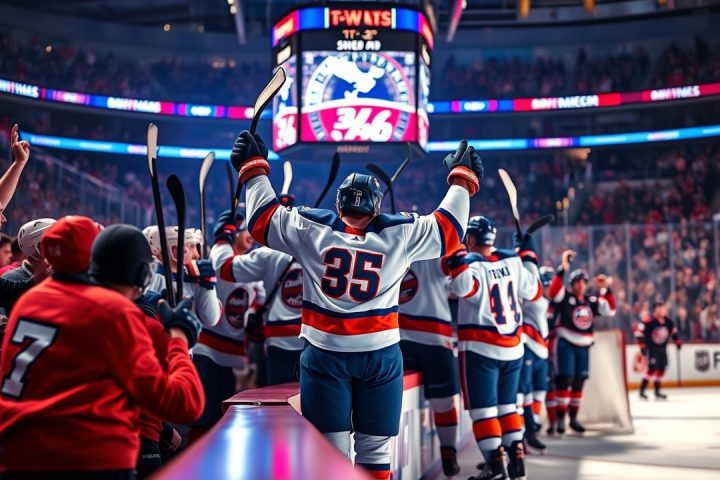The Importance of Team Depth in Hockey
In the world of hockey, the idea of a single player who can dramatically alter the fate of a team captivates fans and franchise decision-makers alike. The Philadelphia Flyers, who once relied heavily on the exceptional talents of Claude Giroux as their franchise player, are now at a pivotal juncture. Despite Giroux’s impressive skills ensuring the team remained competitive, they ultimately fell short of reaching the pinnacle of success during his tenure.
Strategic Decisions Ahead
Today, the Flyers face a crucial decision: should they take a gamble on finding a star player who can make an immediate impact, or should they focus on building a robust team with depth that can sustain success throughout the grueling 82-game NHL season?
There is a compelling argument for the latter approach. Unlike sports such as basketball, where a single superstar can propel a team to greatness, hockey requires a different strategy. Even elite players like Connor McDavid have struggled to lead their teams to victory without adequate support. The Edmonton Oilers, for instance, only began to find success when they surrounded McDavid and fellow star Leon Draisaitl with solid contributors.
The Value of Team Depth
The value of team depth cannot be underestimated. It allows a squad to handle injuries better, enables coaches to craft effective matchups against foes, and fosters a collective identity that is less reliant on one standout player. The Flyers are currently embracing this strategy as they strive to become a more balanced and formidable team.
Examining their roster, they feature promising upcoming players like Matvei Michkov, who has the potential to become a game-changer akin to some of the league’s elite. However, he won’t carry the entire responsibility; instead, he will join a solid lineup that includes Travis Konecny, who is notching impressive point totals, and Owen Tippett, known for his goal-scoring abilities. Additionally, players like Trevor Zegras and Noah Cates contribute various dimensions to the attacking play.
Defensive Strengths
On the defensive front, Travis Sanheim has established himself as a number one defenseman. Cam York has demonstrated he can compete with the league’s top players, while Nick Seeler provides reliable physicality, and a healthy Jamie Drysdale adds offensive flair. Hence, while none of these individuals singlehandedly can turn the Flyers into a powerhouse, together, they form a well-rounded team capable of performing consistently across all games.
Learning from Other Franchises
The pitfalls of relying too heavily on a singular superstar are evident in the experiences of other franchises, such as the Toronto Maple Leafs. They locked themselves into a high-profile core with Auston Matthews and others but struggled to surround them with the necessary depth. This has hindered their playoff performance, illustrating that success in hockey often rests on a more multifaceted approach rather than the exploits of just one player.
A Balanced Approach
The Flyers are wisely avoiding this scenario and instead opting for a balanced approach that emphasizes the importance of multifaceted contributions across the lineup. This strategy does not dismiss the need for star players, as evidenced by Michkov’s potential, but reframes the focus on a cohesive team structure where any line can score and any defensive pairing can hold the fort.
While the future may bring opportunities to acquire standout talent, now is the time for the Flyers to lay down the groundwork for a competitive roster with solid depth that can withstand the rigors of a full NHL season. Achieving success boils down to strategic depth rather than chasing after the dream of a singular savior. For the Flyers, the goal is to create a team that plays cohesively and relentlessly, making it difficult for opponents to dominate them. While stars attract attention, it’s the strength in depth that can ultimately lead a team to lift the coveted Stanley Cup.




